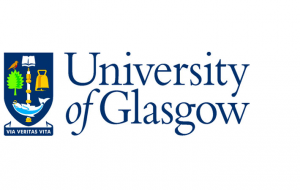Courses
Health Economics for Health Professionals
University of Aberdeen
This online programme provides students with an understanding of the health economics principles and tools to analyse and address the challenges of limited resources faced by the health sector.
More information on: https://www.abdn.ac.uk/study/postgraduate-taught/degree-programmes/111/health-economics/
Health Economics for Public Health Practice & Research
Bangor University, Gwynedd
3 – 5 April 2017
2 day short course which will cover:
- Public Health Preventative Strategies
- An Overview of Health Economics and Economic Evaluation
- Challenges of Applying Health Economics to the Public Health
- Can we use RCTs in the Economic Evaluation of Public Health Interventions?
- Decision Modelling for Economic Evaluation and Application to Infectious Diseases
- Decision Modelling in Public Health (introductory session and advanced session)
- The Role of Pharmacists in Health Promotion
- Cost Benefit Analysis in Public Health
- Social Return on Investment (SROI)
- Programme Budgeting Marginal Analysis (PBMA)
More information here.
Basics of Health Economics
 A free massive open online course (MOOC) regularly run by the World Bank. The objectives of the course are to expose participants to the potential contribution of health economics to decision making in the health sector. At the end of the course, participants will be able to use economic rationale to determine when a strong case exists for government action; apply economics to improve the efficiency with which health resources are allocated; analyse economic arguments to help improve technical efficiency in the health sector; explain how economics can help improve equity in the health sector; use the language of economics and health sector reform to communicate more effectively with finance ministries; justify the role of the public sector by correctly identifying market failures; apply the different dimensions of efficiency to ensure a larger return to investments in the health sector.
A free massive open online course (MOOC) regularly run by the World Bank. The objectives of the course are to expose participants to the potential contribution of health economics to decision making in the health sector. At the end of the course, participants will be able to use economic rationale to determine when a strong case exists for government action; apply economics to improve the efficiency with which health resources are allocated; analyse economic arguments to help improve technical efficiency in the health sector; explain how economics can help improve equity in the health sector; use the language of economics and health sector reform to communicate more effectively with finance ministries; justify the role of the public sector by correctly identifying market failures; apply the different dimensions of efficiency to ensure a larger return to investments in the health sector.
Future dates:
- 30th March 2016
Health Economics For HTA
University of Glasgow
This course aims to provide students with a critical understanding of health economics, its value and limitations. It will familarise participants with the application of economic theory to health and health care issues, the principles of health economics and the techniques of economic appraisal.
- Purpose: This course will deliver the fundamentals of health economics and the practical elements of economic evaluation that are integral to health technology assessment.
- Content: key concepts of economics, economic characteristics of health care, economic evaluation techniques, sensitivity analysis, health economics informing decision making.
Further details and registration here.
Health Economics and Health Technology Assessment
University of Glasgow
A number of training courses in health economics offered by the HEHTA team at the University of Glasgow. These include an online MSc in Health technology Assessment as well as decision analytic modelling courses.
Further details can be found on the Continuing Professional Development (CPD) section of the university.
Economics of Health Inequality
Erasmus University, Rotterdam
Tinbergen Institute collaborates with the Health Economics Group of the Erasmus School of Economics (EUR) to organize a challenging summer course on Health Inequality.
Health differs markedly by education, race, occupation and income. In high-income countries, a 30 year-old man with only compulsory education can expect to live almost eight years less than a college graduate. The striking magnitude and the persistence of socioeconomic disparities in health is a major public health issue. In the context of population ageing and rising medical expenditures, it is also attracting attention in economics.
This course arms students with tools to measure health inequality. It makes them familiar with models developed to explain socioeconomic disparities in health and competent in empirical methods used to estimate socioeconomic determinants of health. The course is targeted at economists embarking on research on population health, as well as at researchers from the field of public health wishing to become competent in techniques employed by economists to analyse health inequality.
